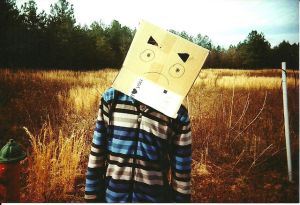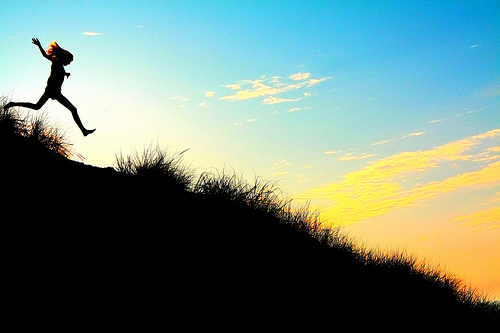
If you’re a normal person, you probably suffer about a hundred times as much from fearing bad outcomes as you do from the ones that do happen to come true.
And it’s unlikely that the sleepless night spent fearing a bombed job interview served as useful experience for when it did happen. It probably made it worse, and maybe even caused it to happen in the first place.
You probably didn’t notice that the 99 other things you feared that day never became real. If you had a ledger for all the fears in your life, and on the left you wrote down the what you feared would happen, and on the right you wrote down what actually happened, anybody reading it would laugh.
There are no real outcomes anyway. We worry so much about “ending up” in a particular bad way. But even the fears that do (more or less) come true have no finality about them, they’re just a new place from which to work for now. For all you know this new place sits on a better path than the result you had hoped for.
Was sadness and disappointment the final, permanent outcome of your rejected novel? Was it the end of happiness in your life? The “outcome” of any particular endeavor is just another middle chapter, just another starting point for something else. There’s nothing damning about the middle of any story, and unless you’re dead, you’re in the middle. (So I guess there is one true outcome, but there’s no uncertainty about whether it will happen, and it has the virtue of ending all your worries anyway.)
Everyone has a past riddled with bombed exams, awkward job interviews, bad dates, lost wallets, and birthdays with low turnouts, and few of those fears-come-true continue to cripple us today. Mostly they consist of an awful few minutes followed by an ordinary bad mood, maybe an inconvenient new errand to complete or a new parameter to work under, and some unpleasant rumination later on, if you choose to bother with that.
Of course, most of the unpleasant developments in life are the ones it didn’t occur to you to worry about anyway. They “blindside you at 4pm on an idle Tuesday,” as Mary Schmich put it in her famous column-turned-book. (The one about wearing sunscreen.)
When you decide you’ll walk into your moments of truth — your project launches, race days and blind dates — with an unconditional willingness to see what happens, fear doesn’t have much to do.
For some reason we interpret the presence of fear as a trustworthy reason to be tentative, to delay our arrival at a result. This gives fear time to make the unhappiest possibilities bigger in our minds, seemingly more worthy of respect. Yet fear is your mind at its dumbest and least articulate. All it knows how to do is shout “Get away!” Read More




 I'm David, and Raptitude is a blog about getting better at being human -- things we can do to improve our lives today.
I'm David, and Raptitude is a blog about getting better at being human -- things we can do to improve our lives today.
It all pretty the opposite if you're not in the US :) Since 2022 I've changed 3 countries and I'm planning to emigrate to the fourth one. I've had so much novelty and so many things to adapt to. However, time had never run so fast for me as in 2022...